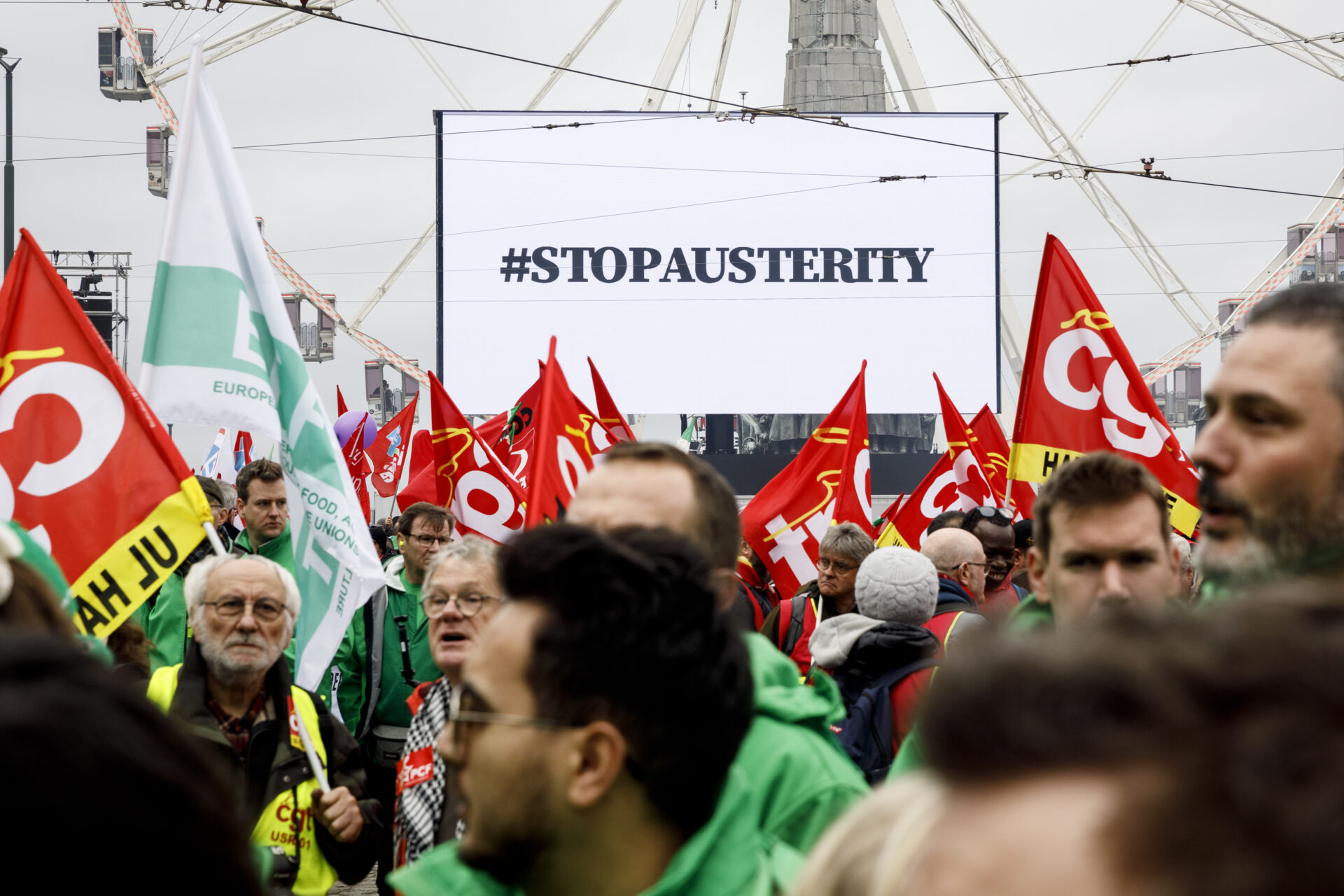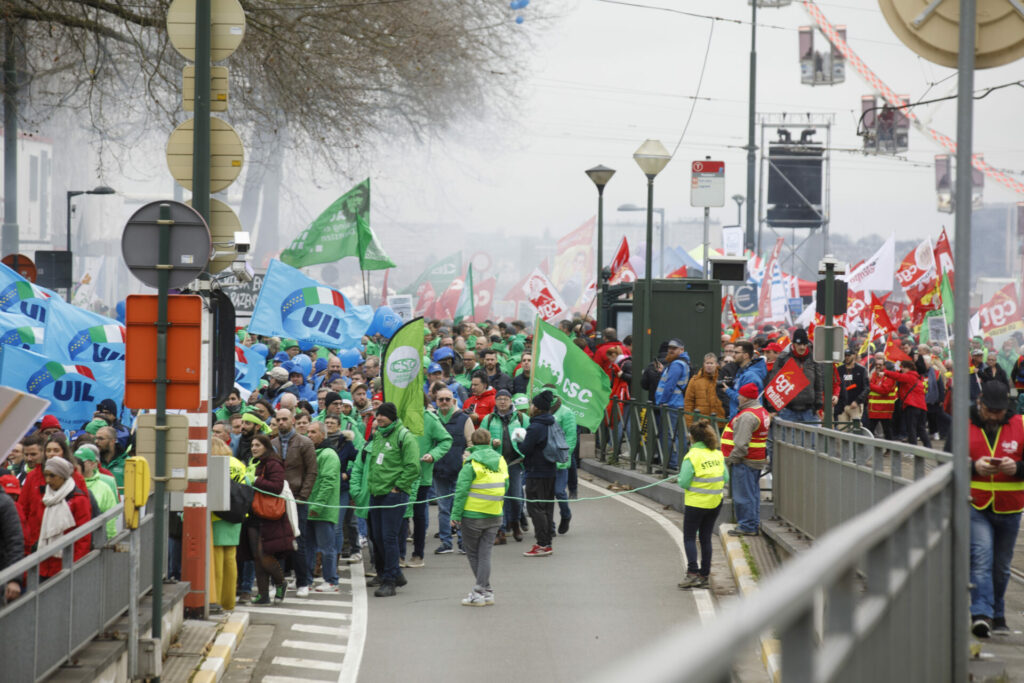Thousands of trade unionists from across Europe gathered in Brussels yesterday for a 'Strike Against Austerity' ahead of budget discussions at an EU Summit this week.
Led by the European Trade Union Confederation (ETUC), between 5,000 and 10,000 members of trade unions from various Member States convened to "sound the alarm bells" about the EU's plans to reform the bloc's economic governance rules. Taking place on 14 and 15 December, the last EU Summit of the year will focus on Ukrainian accession and financial aid, the Middle East, enlargement, and revision of the EU budget.
Trade unionists say this last point, which consists of reforming the Stability and Growth Pact, signals a return to severe austerity measures. The strike aims to send a strong message that austerity is not the only option available to Europe. "These are deliberate political choices," ETUC General Secretary Esther Lynch told journalists. "We need a radical rethink from EU-mandated austerity.”
Trade unions instead advocate a policy that promotes social justice through increased investment in public services, renewed emphasis on a just climate transition, higher wages and quality jobs, stronger social protection, and an end to pension reductions. They also demand greater transparency in how decisions taken at the EU level will impact national budgets.
'Solidarity across borders'
The strong turnout displayed a Europe-wide pushback against austerity. Trade unionists from Belgium, France, Italy, Germany, Poland, Malta and elsewhere travelled to the Belgian capital in a show of solidarity and determination. They loudly put forward their concern that another round of austerity would bring Europe to its knees.
Two women working in the service industry travelled from Italy to participate in the strike. Both had experienced the biting impact of austerity for their country's tourism sector following the 2009 financial crisis. "We want EU institutions to know that austerity doesn't work," one said. "It goes against the people."

Credit: Belga / Hatim Kaghat
Investment in education – already stretched thin – is another point of particular concern. Irina Avdejeva, Vice President of Latvian teacher's trade union LIZDA, also travelled to Belgium and cited the need for protest at the European level, as many countries are facing similar domestic challenges.
Low salaries, precarious contracts and privatisation constitute existential threats for teachers across Europe, warned Susan Flocken, European Director of the European Trade Union Committee for Education (ETUCE).
"People have travelled from across Europe because we have a lot to lose," said Mark, a Ghent native and member of the Belgian general labour union ABVV. "It's about showing solidarity across borders."
Old wounds
The ghost of austerity haunts perceptions of EU cuts in social spending. The Stability and Growth Pact currently up for discussion would prevent Member States from spending their way out of crisis. This would in turn force them into austerity, striking trade unions warn.

Aerial view taken from the giant wheel shows a demonstration against the European Union's plans to reintroduce austerity, in Brussels, Tuesday 12 December 2023. Credit: Belga / Hatim Kaghat
France, Italy and Belgium would be hardest hit given high levels of public debt, said Lynch. In an interview with The Brussels Times, she held the EU's fiscal policy since the financial crisis responsible for today's "broken" system and warned of dire economic conditions pushing voters ever closer to far-right candidates.
In sharp contrast, the EU's response to the pandemic is cause for optimism among some protestors. For many, solidarity mechanisms at the time are proof that institutions are capable of spending the money necessary to safeguard what matters to Europeans: health and work.
Frustration at the failure to repeat this fiscal response was clear throughout Tuesday's mobilisation. Trade union leaders embodied a determination to underscore the precious opportunity for reform facing Europe and the potentially dire consequences if public spending cuts materialise. "The last wave of austerity led to Brexit," says industriALL Deputy Secretary General Jude Kirton-Darling. "The next one threatens the base of Europe."

